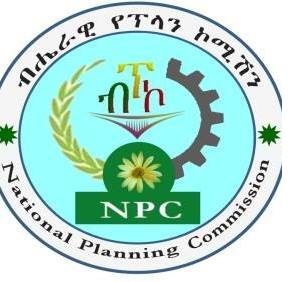Homegrown Policies Drive Ethiopia's Fastest Economy Globally: NPC - ENA English
Homegrown Policies Drive Ethiopia's Fastest Economy Globally: NPC

Addis Ababa May 25/2018 The homegrown policies, strategies and programs in Ethiopia have played an indispensable role in registering one of the fastest growing economies in the world during the past two decades, according to National Planning Commission (NPC). In an exclusive interview with ENA Getachew Adem, National Planning Commission Deputy Commissioner with the rank of State Minister said policies, strategies and programs are domestically grown and contextualized to the country`s milieu and aspirations. “These policies, strategies and programs at the beginning, they are homemade, and they considered the country’s context. This means our great assets are land and human resources. The policy, strategy and program, therefore, originated with considering such driving forces.” According to him, large amount of human resources of the country is based in rural areas, which has now accounted for about 78 percent from 85 percent at the start of these policies and strategies implementation. Efforts have been exerted based on these policies and strategies in education, health, agriculture, food security and industrial sectors among others mainly for more than two decades, he stated. Getachew said some 20 years before, 64 percent of the country’s population was below poverty level, currently this figure has dropped close to 22 percent and achieved the Millennium Development Goals (MDGs). Life expectancy rose from 45 in 2000 to 64 years to date. The government has achieved this growth against all odds, the majority of the international community urged the government to withdraw from most of the investment activities and hand them over to the private sectors, he reminded. Now the policies and strategies paid off for the country by enabling the nation to register the broad based and fastest economy in sub-Saharan Africa and one of the fastest economy in the World for the past 15 years. The quality of education, infrastructures development and efforts exerted to export value added commodities are mentioned among the next major focus areas to be addressed. “Now agriculture is the dominant source of growth so far. For the growth to be more sustainable, structural change should be ensured within every sector including the agriculture”. Dr. Seid Nuru, Senior Researcher at Ethiopian Economic Association told ENA that Ethiopia`s economic growth did not come out of a divine miracle, the 10/15 years growth prove the validity and correctness of polices. Despite its pragmatic economic policy, realizing the growth and transformation program has been facing certain challenges due to implementation and related problems that need to be addressed, he mentioned. Therefore, political commitment is crucial to realize the country`s ambition through ensuring institutional accountability, transparency and fighting corruption, the researcher emphasized. “The current political reform will play a significant role only if it could be managed sustainably. The reform at its initial level may cause a bit of slow in various economic activities because of some immediate measures," he indicated test ahead of the reform. According to the expert, the East Asian countries like South Korea and China have transformed their economy through structural changes in a relatively short period of time. “The 10 or 11 percent growth is a massive growth despite being emanated from low level. Countries like South Korea have been developed by around 10/11 percent. While we take Botswana, its growth was 12 percent. So it is comparable. Then where is the difference? The difference what Ethiopia unable to achieve and even Botswana at its middle income status not achieved as Korea and China is structural change.” Based on such measures, Ethiopia has huge capital accumulation similar to Korea and China. This is close to 38-40 percent from the GDP, however, this should be supported with structural transformation, he indicated. “Without systematic change, if an ox not changed by a machine truck be it rental or own capacity, or without other modernized tools, it may gain temporary achievements for limited period with no sustainability. Our capacity is still depend on rain from nature, so the next step should be developing our natural gift of water in to irrigation”. Ethiopia’s government aims to reach lower-middle-income status by 2025.